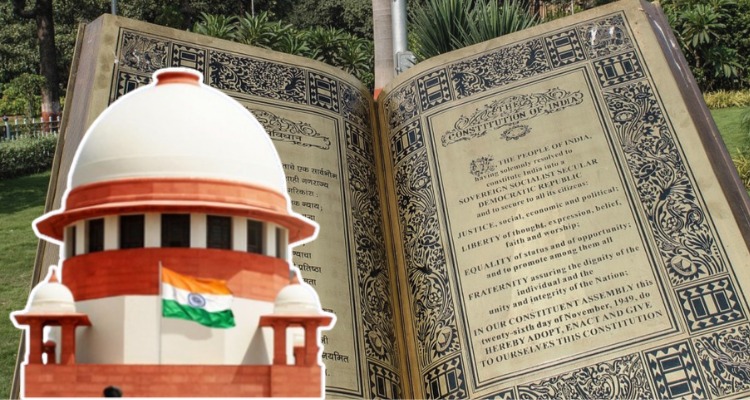
The Supreme Court of India on July 19 (Friday) agreed to examine the contours of Article 361 of the Constitution, which grants ‘blanket immunity’ to governors from any form of criminal prosecution.
This decision came in response to a plea from a contractual woman employee of West Bengal’s Raj Bhavan, who has alleged molestation by Governor C.V. Ananda Bose and wrongful confinement by officials there.
A bench comprising Chief Justice of India D.Y. Chandrachud and Justices J.B. Pardiwala and Manoj Misra issued a notice to the West Bengal government regarding the woman’s plea and granted her the liberty to include the central government as a party. The bench also sought the assistance of Attorney General R. Venkataramani in addressing the constitutional issue.
Understanding Article 361
Article 361 of the Indian Constitution provides immunity to the President and the Governors of states from legal action while they are in office.
This protection ensures that neither the President nor a Governor can be held accountable by any court for their official duties and powers or for actions taken in the course of performing these duties. During their term, they are safeguarded from both criminal and civil proceedings. Specifically, no criminal cases can be initiated or continued against them, and no court can issue orders for their arrest or imprisonment. In terms of civil proceedings against them in their personal capacity, there is an additional layer of protection: a two-month notice is required before any action can be taken.
This notice must detail the nature of the proceedings, the cause of action, and the particulars of the party initiating the proceedings. These provisions ensure that the highest offices in the country can function without undue legal interruptions, maintaining the dignity and efficiency of their roles.
Role and Responsibilities of the Governor
The Indian Constitution comprehensively outlines the role, powers, and responsibilities of the Governor under Articles 153 to 162.
Serving as the executive head of a state, the Governor’s position is analogous to that of the President of India, but at the state level. This similarity extends to their duties and the overall functioning of their offices, with the state’s governing machinery mirroring that of the Central Government.
The Governor’s role is defined by a dual nature: firstly, as the constitutional head of the state, the Governor operates based on the advice of the state’s council of ministers; secondly, the Governor acts as a crucial intermediary between the Union Government and the State Government, ensuring coordination and communication between the two levels of government.




